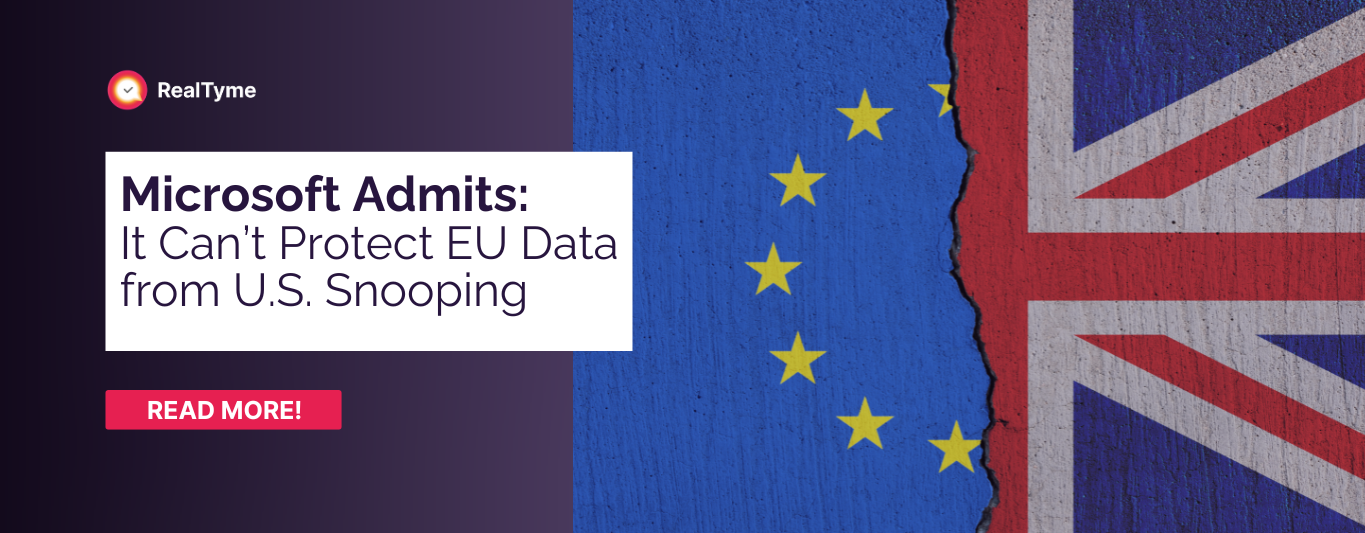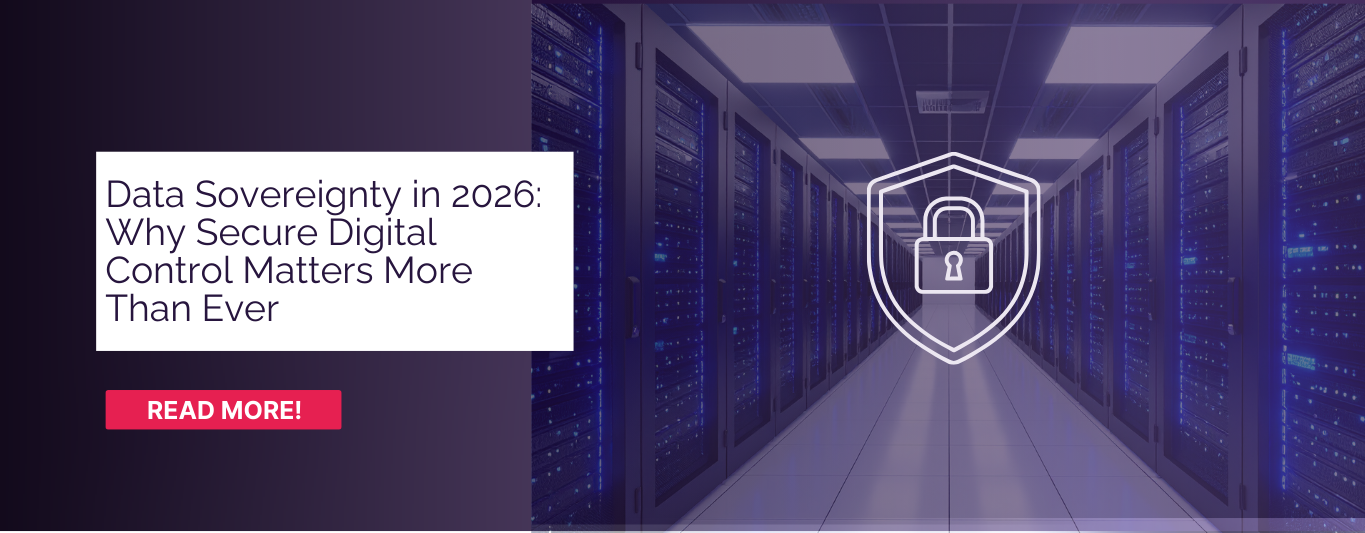Microsoft Admits: It Can’t Protect EU Data from U.S. Snooping

Think about trusting your cloud provider to keep your most sensitive data safe, only to find out it can be handed over to a foreign government without your knowledge.
In a pivotal moment for Europe’s digital future, Microsoft has publicly confirmed what privacy advocates have long feared: under U.S. law, it cannot guarantee the protection of European data from foreign access.
This stunning admission came during sworn testimony before a French Senate inquiry on the role of public procurement in promoting digital sovereignty. When asked directly whether he could guarantee that French citizen data would never be handed over to U.S. authorities without the explicit authorization of the French government, Anton Carniaux, Director of Public and Legal Affairs at Microsoft France, responded:
“No, I cannot guarantee it.”
He clarified that while Microsoft resists U.S. government data requests that are "not well-founded," it ultimately remains subject to the U.S. CLOUD Act—a law that compels American companies to hand over user data, regardless of where it is physically stored.
And with that, the debate around data sovereignty in Europe shifted from theory to undeniable reality.
It exposes the uncomfortable truth that European institutions, businesses, and citizens are vulnerable to foreign surveillance by design.
Why Data Residency ≠ Data Sovereignty
Microsoft’s acknowledgment under oath highlights a crucial and often misunderstood distinction:
Just because your data is stored in Europe doesn't mean it's protected by European law.
The CLOUD Act gives U.S. authorities the legal right to demand access to data held by U.S.-based companies, no matter if it's hosted in Paris, Frankfurt, or Amsterdam. Even if a company promises to localize data, that promise crumbles if its legal obligations point back to Washington.
This isn't a technical oversight. It’s a structural vulnerability. And it directly impacts the security of:
- Government institutions
- Healthcare systems
- Critical infrastructure
- Financial and legal data
- Personal communications
In essence, legal jurisdiction trumps physical location. You can host your entire infrastructure in Paris, but if your provider is American, your data is still fair game for Washington.
The Cloud Act Explained: Global Reach, Zero Transparency
The CLOUD Act (Clarifying Lawful Overseas Use of Data), enacted in 2018, effectively makes data stored on foreign soil accessible to U.S. authorities if it’s held by a U.S. company or any provider with U.S. operations.
What makes it especially dangerous?
- No obligation to notify the affected individuals;
- No requirement to inform the host country (like France or Germany);
- No opportunity for customers to opt out or legally block access.
It creates a shadow surveillance regime operating silently across borders.
Even companies like OVHcloud—based in France but operating in the U.S.—acknowledge in their own FAQs that they must comply with such requests.
You Thought the Data Was Yours
Let’s say you're running a public health agency in Belgium. Your teams work inside a secure, modern cloud environment. You’ve chosen a major provider. You were promised local storage, full encryption, and compliance with EU law.
So, you think the data is yours.
Until it isn’t.
One day, without warning, a request comes through, from a court thousands of kilometers away, in a country your agency has no legal ties to. The provider doesn’t tell you. They don’t have to. The law that applies isn’t yours. It’s theirs.
The data goes. You don’t even know it’s missing.
This is exactly what Microsoft confirmed. They can’t promise your data stays under your control because they’re not the ones in charge.
And here’s the problem: you’re the one who will have to answer for it.
Not the provider. Not the judge in another country. You.
To your board.
To your regulators.
To your users, patients, citizens.
Because as far as your country is concerned, that data was under your roof. But in reality, it was just parked there temporarily, until someone else came to claim it.
So the question isn’t “Where is your data stored?”
It’s “Who has the final say over it?”
If it’s not you, then it never really belonged to you in the first place.
Europe’s Awakening: Time to Build Sovereign Infrastructure
The Microsoft testimony is a wake-up call, but also a turning point. Across the EU, regulators, privacy experts, and national governments are re-evaluating their dependence on U.S. hyperscalers.
We’re witnessing the early stages of a continental shift toward true digital independence, marked by:
- EU-native cloud and communication platforms;
- Zero-trust encryption models where the provider can’t access your data;
- Public procurement reforms that prioritize compliance and control, not convenience;
- Legal firewalls against foreign surveillance powers.
Microsoft has pointed to increased investments in European data centers as a response to rising geopolitical tensions. But when legal obligations still tie data access back to the U.S., adding more infrastructure in Europe doesn’t ensure sovereignty—it merely gives the appearance of control.
AWS, Google, and the Battle for Trust
Other U.S. hyperscalers are also racing to reassure European customers:
- AWS has discussed goals around enhancing data sovereignty for European customers, including initiatives to run services with EU-based controls, separate billing structures, and stronger governance. Any sovereign cloud in Germany, as previously mentioned, would aim to give European clients more operational autonomy.
- Google pointed to its May blog post on sovereignty but declined to provide further comment when questioned.
Still, both companies remain bound by the same legal obligations as Microsoft—no matter how many “sovereign” labels they apply.
And as industry leaders have noted, trust isn’t built on blog posts. It’s built on legal independence, operational control, and transparency.
What Real Digital Sovereignty Looks Like in 2025
Real digital sovereignty means your data:
- Your data is subject only to local laws and constitutional protections;
- Encryption is applied end-to-end, with only you controlling the keys;
- No third-party access—by default or design;
- Full transparency and auditability across your infrastructure;
- No hidden backdoors, no legal ambiguity, no blind trust.
And above all—no foreign jurisdictions with secret court orders.
RealTyme: Communication Without Compromise
At RealTyme, our secure communication platform is engineered to meet the most demanding requirements for privacy, compliance, and sovereignty.
Here’s what makes us different:
- Swiss-based jurisdiction — Safely outside the reach of the U.S. CLOUD Act;
- End-to-end encryption and zero metadata logging — We see nothing, and track nothing;
- Private, on-premise, or air-gapped deployment options — You control where and how it's hosted;
- Full transparency and auditability — Trust is verified, not assumed;
- Enterprise-grade compliance — Built to meet EU and GDPR standards.
RealTyme is built for governments, critical infrastructure, and enterprises who can't afford leaks, breaches, or compromise.
Because we believe that your data should belong to you—and only you.
Final Thought: Sovereignty Can’t Be Promised—It Must Be Built
Microsoft’s testimony didn’t reveal anything new. But it confirmed everything the European privacy community has long suspected.
The difference now? It’s on the record. And it’s time to act.
Now is the time for governments, enterprises, and civil society to take control of their digital future—not with slogans, but with solutions.
If you’re still relying on providers who admit they can’t protect your data, it’s time to ask:
What are you really securing?
At RealTyme, we don’t just claim to be secure—we’re built for it.
Our sovereign and secure communication platform enables governments, enterprises, and mission-critical teams to communicate with confidence, knowing their data remains private, protected, and sovereign.
No third-party access.
No compliance loopholes.
No compromises.
Because in a world where trust is fragile, sovereignty is non-negotiable.
Contact us today.



